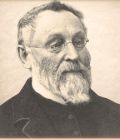COMMON NAME:
PURE CLAY.
Symptoms
Spare, dry, thin subjects (A.).
Dryness of membranes; the conjunctiva, the nose and the intestinal tract are all very dry (D.).
Constant, dry, hacking cough; interrupts breathing (B.).
Throat feels full of stick or constricted (B.).
Eyes: Agglutination in the morning on waking, with burning when opened, and dread of light; dim vision, obliging her to wipe her eyes constantly (R.).
Useful for granular lids (Graphites, Sepia, Sulphur), or chronic blepharitis (Borax, Calcarea, Graphites, Sepia, Silicea, Sulphur, Thuja). (R.). Dry, tettery, itching eruption, worse in winter (Psorinum) (A.).
Chapped skin and eczematous eruptions.
Intolerable itching of the whole body, when getting warm in bed (Sulphur); scratches until bleeds, then becomes painful (A.).
ECZEMA (ARS., GRAPH., MERC., MEZER., Sulphur) (B.).
ABNORMAL APPETITE; WANTS STARCH, CHALK, CHARCOAL, COFFEE OR TEA GROUNDS, ACIDS, INDIGESTIBLE THINGS; POTATOES DISAGREE (N.)
Bruised feeling in the black. Pain in the lower vertebrae, as if a hot iron were thrust through. Shooting pains in back (R.).
No desire for stool (Bryonia, Opium, Sulphur) (Br.).
Constipation of children; the rectum is dry, hard, inflamed and bleeding (D.)
THE STOOLS MAY BE DRY, HARD AND KNOTTY, LIKE SHEEP DUNG, OR SOFT (d.).
Constipation, from great dryness of the mucous follicles of the rectum, with long-lasting pain in the rectum: (Bt.).
Very efficient in the cure of intractable costiveness in women of an extremely sedentary habit.
INACTIVITY OF THE RECTUM; EVEN A SMALL STOOL REQUIRES GREAT STRAINING (Anacardium, Graphites, Opium, Plb., Sepia, Silicea, Sulphur) (N.).
Weakness of memory and inability to think coherently.
The patient is tired and faints easily (Sepia). and must lie down (Bl.).
Confused as to personal identity (Anacardium). (Br.)
Sad thoughts constantly crowd upon the mind; everything is viewed in a sad light (G.).
TIME PASSES TOO SLOWLY; AN HOUR SEEMS HALF A DAY (Cannabis indica) (A.).
He feels as if some parts of the body were enlarged.
AS SOON AS SHE SEES BLOOD OR A KNIFE, WANTS TO KILL HERSELF (Dg.).
Vertigo on opening the eyes; everything turns with him in a circle; with white stars (G.).
There is a sensation as if there was cobweb on the face (D.).
INTESTINAL HAEMORRHAGE; PROFUSE DISCHARGE OF COAGULATED BLOOD IN A MASS, RESEMBLING LIVER AND SERUM, WITHOUT PAIN, BUT GREAT WEAKNESS (TYPHOID) (N.).
Chlorosis, with pale and scanty menses and craving for indigestible substances (D.).
Unpleasant want of animals heat (Silicea).
Pain in the back, as if a hot iron were thrust through the lower vertebrae.
Great debility from exercise, as in walking.
Bearing down pains, as though everything would fall through the vagina (Dg.).
PROFUSE, TRANSPARENT, ACRID LEUCORRHOEA, RUNNING DOWN TO THE HEELS IN LARGE QUANTITIES (G.).
After the menses, she is so weak in body and mind, that a little exercise prostrates her (G.).
Leucorrhoea: acrid, worse after the menses, with burning in the genitals and rectum, which parts seemed inflamed and corroded, so that walking was difficult; better from washing with cold water (R.).
Chronic eructations for years; worse in the evening (A.).
Great dryness of the throat (Bt.).
Clergyman’s sore throat (Br.).
There is present tearing pain in the limbs and a sensation of constriction of the internal organs (oesophagus).
SENSE OF CONSTRICTION, FROM PHARYNX DOWN TO STOMACH; SEEMS AS IF FOOD COULD NOT PASS (AEsc., Alumn., Arg M., Arsenicum, Belladonna, Cact., Cuprum, Hyoscyamus, Ignatia, Kali carb., Lyss., Merc-C., Natrum muriaticum, Phosphorus, Plb., Sabad., Zincum met.).
Involuntary motions (jerking of the head and other parts are associated in this condition).
INABILITY TO WALK, EXCEPT WITH THE EYES OPEN, AND IN THE DAYTIME; TOTTERING AND FALLING WHEN CLOSING EYES (Argentum nitricum, Gelsemium, Kali-P., Phosphorus, Silicea). (A.).
When sitting the nates go to sleep (G.).
HE FEELS AS IF HE WAS WALKING ON CUSHIONS (D.).
THERE IS CREEPING, AS IF ANTS WERE CRAWLING ON HIS LEGS AND BACK (D.).
Has proven useful in cases simulating locomotor ataxia. The lower limbs appear heavy; can scarcely drag them along; staggers when walking (Bl.).
Muscles of bladder paretic; difficult starting (Br.).
Involuntary urination with the stool, or urine can be passed only during stool (N.).
Retention of urine. Can only void urine while straining at stool (N.).
AGGRAVATION:
In cold air; during winter; while sitting; from eating potatoes; after eating soups; in the afternoon; periodically; on alternate days; at new and full moon; and during the act of micturition.
AMELIORATION:
Mild summer weather; from warm drinks; while eating; in wet weather; during moderate exercise; in the open air; in the evening; and on alternate days.
RELATIONSHIP:
Alumina is the chronic of Bryonia.
Similar to Bar-C., Conium, Pareira and Sepia in ailments of old people.
Complementary to Bryonia.
Follows well after Bryonia, Lachesis and Sulph.
Alumina is one of the chief ANTIDOTES for lead poisoning; painter’s colic; and ailments from lead.

